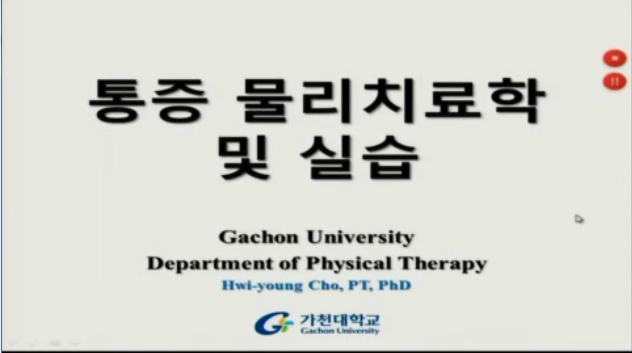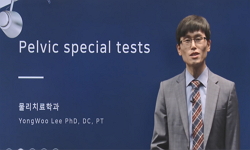Purpose : Selective functional movement assessment(SFMA) is a movement-based assessment tool designed for clinicians to diagnose and treat pain and functional physical problems. This concept is used for assistance in occupations related to movement, i...
http://chineseinput.net/에서 pinyin(병음)방식으로 중국어를 변환할 수 있습니다.
변환된 중국어를 복사하여 사용하시면 됩니다.
- 中文 을 입력하시려면 zhongwen을 입력하시고 space를누르시면됩니다.
- 北京 을 입력하시려면 beijing을 입력하시고 space를 누르시면 됩니다.

선택적 기능 동작 평가의 연구 동향 분석 = Investigation of Research Trends in the Selective Functional Movement Assessment (SFMA)
한글로보기https://www.riss.kr/link?id=A107473138
- 저자
- 발행기관
- 학술지명
- 권호사항
-
발행연도
2021
-
작성언어
-
- 주제어
-
등재정보
KCI등재
-
자료형태
학술저널
-
수록면
63-73(11쪽)
-
KCI 피인용횟수
0
- 제공처
-
0
상세조회 -
0
다운로드
부가정보
다국어 초록 (Multilingual Abstract)
Purpose : Selective functional movement assessment(SFMA) is a movement-based assessment tool designed for clinicians to diagnose and treat pain and functional physical problems. This concept is used for assistance in occupations related to movement, including clinical medical personnel, such as physical therapists, physical education instructors, and athlete coaches. Although this concept is widely used by clinicians, research and scientific proofs are relatively insufficient. This study aimed to review the literature on the understanding, reliability and effectiveness of SFMA, and to consider its role in the future of rehabilitation.
Methods : In this review, a total of nine articles were selected according to the eligibility criteria of three major thesis topics. The main topics covered in the literature are reliability and effectiveness of clinical use of SFMA. To gather research articles, we searched official term 'Selective Functional Movement Assessment'. Among the searched 60 studies, nine were mentioned in this study that contained overlapping information and matched our desired topic. We reviewed four reliability analyses, four case reports, and one experimental study.
Results : Reliability has an intermediate degree between high raters and within raters. The validity of the SFMA system is influenced by a combination of experience and logic; hence, further improvement is needed. Therefore, if the intervention was effective based on the diagnosis result, then biomechanical evidence is necessary to further support the claim.
Conclusion : In future research, to use SFMA as a diagnostic tool with high accuracy, it is necessary to improve the reliability of the main problem through breakout, support for guidelines and validity and efficiency.
참고문헌 (Reference)
1 Huang L, "effect of exercise intervention based upon the Selective Functional Movement Assessment in an athlete with non-specific low back pain: A case report and pilot study" 11 : 2020
2 Goshtigian GR, "Using the selective functional movement assessment and regional interdependence theory to guide treatment of an athlete with back pain: a case report" 11 (11): 575-595, 2016
3 Kim J, "Selective Functional Movement Assessment (SFMA)-based therapeutic corrective exercises reduces knee joint pain in a patient with patellofemoral pain syndrome after pregnancy (case study)." 8 (8): 83-92, 2016
4 Choi J, "Selective Functional Movement Assessment (SFMA) for patients with lumbar and shoulder disorders. International Information Institute (Tokyo)." 19 (19): 5517-5522, 2016
5 Harrell D, "Reliability study on selective functional movement assessment in real-time" 2016
6 Wainner RS, "Regional interdependence : a musculoskeletal examination model whose time has come" 37 : 658-660, 2007
7 Krzyzanowicz R, "Patient outcomes utilizing the Selective Functional Movement Assessment and mulligan mobilizations with movement on recreational dancers with sacroiliac joint pain : a case series" 20 (20): 31-37, 2015
8 Cook G, "Movement: Functional movement systems:screening, assessment, corrective strategies" On Target Publications 113-199, 2010
9 Glaws KR, "Intra‐and inter‐rater reliability of the Selective Functional Movement Assessment (SFMA)." 9 (9): 195-207, 2014
10 Stanek JM, "Intra-and inter-rater reliability of the Selective Functional Movement Assessment(SFMA)in healthy participants" 14 (14): 107-116, 2019
1 Huang L, "effect of exercise intervention based upon the Selective Functional Movement Assessment in an athlete with non-specific low back pain: A case report and pilot study" 11 : 2020
2 Goshtigian GR, "Using the selective functional movement assessment and regional interdependence theory to guide treatment of an athlete with back pain: a case report" 11 (11): 575-595, 2016
3 Kim J, "Selective Functional Movement Assessment (SFMA)-based therapeutic corrective exercises reduces knee joint pain in a patient with patellofemoral pain syndrome after pregnancy (case study)." 8 (8): 83-92, 2016
4 Choi J, "Selective Functional Movement Assessment (SFMA) for patients with lumbar and shoulder disorders. International Information Institute (Tokyo)." 19 (19): 5517-5522, 2016
5 Harrell D, "Reliability study on selective functional movement assessment in real-time" 2016
6 Wainner RS, "Regional interdependence : a musculoskeletal examination model whose time has come" 37 : 658-660, 2007
7 Krzyzanowicz R, "Patient outcomes utilizing the Selective Functional Movement Assessment and mulligan mobilizations with movement on recreational dancers with sacroiliac joint pain : a case series" 20 (20): 31-37, 2015
8 Cook G, "Movement: Functional movement systems:screening, assessment, corrective strategies" On Target Publications 113-199, 2010
9 Glaws KR, "Intra‐and inter‐rater reliability of the Selective Functional Movement Assessment (SFMA)." 9 (9): 195-207, 2014
10 Stanek JM, "Intra-and inter-rater reliability of the Selective Functional Movement Assessment(SFMA)in healthy participants" 14 (14): 107-116, 2019
11 Dolbeer J, "Inter-rater reliability of the Selective Functional Movement Assessment (SFMA) by SFMA certified physical therapists with similar clinical and rating experience" 12 (12): 752-763, 2017
12 Cook G, "Functional movement screening : the use of fundamental movements as an assessment of function-part 1" 9 (9): 396-409, 2014
13 김재은, "Effects of corrective exercises on selective functional movement assessment and health risk appraisal in middle-aged women" 물리치료재활과학회 5 (5): 185-192, 2016
14 Do K, "Correlation and reliability analyses among the upper cervical rotation-flexion test, upper cervical flexion-extension test, and upper cervical flexion angle measurement using radiography" 17 (17): 5262-, 2020
15 Kiesel K, "Can serious injury in professional football be predicted by a preseason functional movement screen?" 2 (2): 147-, 2007
16 Frank C, "Assessment and treatment of muscle imbalance: the Janda approach" Human Kinetics 3-42, 2009
17 Sueki DG, "A regional interdependence model of musculoskeletal dysfunction : research, mechanisms, and clinical implications" 21 (21): 90-102, 2013
동일학술지(권/호) 다른 논문
-
거울치료가 아급성기 뇌졸중 환자의 균형, 보행 및 운동기능에 미치는 효과: 예비연구
- 대한통합의학회
- 송민수 ( Min-su Song )
- 2021
- KCI등재
-
진동을 이용한 IASTM이 만성 어깨통증 환자의 어깨 근활성도, 유연성, 통증에 미치는 영향
- 대한통합의학회
- 김재운 ( Jae-woon Kim )
- 2021
- KCI등재
-
보행환경 가변성에 따른 이중과제 훈련이 뇌졸중 환자의 균형, 보행 및 기능에 미치는 영향
- 대한통합의학회
- 김수진 ( Su-jin Kim )
- 2021
- KCI등재
-
- 대한통합의학회
- ( Yangsun Ha )
- 2021
- KCI등재





 ScienceON
ScienceON KISS
KISS







